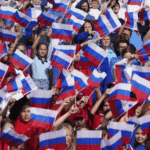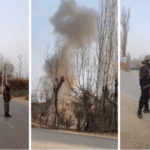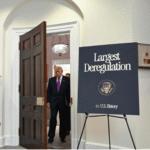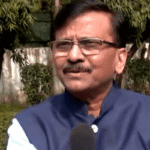Introduction
Kurds U.S.-backed Syrian Democratic Forces (SDF), led by Kurdish fighters, have successfully taken control of the key eastern city of Deir el-Zor. This marks a significant victory in their campaign against ISIS and other militant factions operating in the region. Situated near Syria’s oil-rich areas, Deir el-Zor’s capture is not just a military success but also a strategic move in the ongoing power struggles in Syria.
This article delves into the implications of this victory, the background of the SDF, and the broader geopolitical stakes involving the United States, Syria, and neighboring countries.
The Importance of Deir el-Zor
Deir el-Zor, located in eastern Syria along the Euphrates River, holds immense strategic and economic value due to its proximity to some of the country’s most lucrative oil fields. Control over this city provides:
- Economic Leverage: The oil reserves in Deir el-Zor are a vital source of revenue, crucial for rebuilding war-torn regions.
- Strategic Location: The city acts as a gateway between northern Syria and Iraq, making it pivotal for controlling supply lines.
- Geopolitical Symbolism: Its capture symbolizes a significant blow to extremist groups and a win for the coalition forces fighting terrorism.
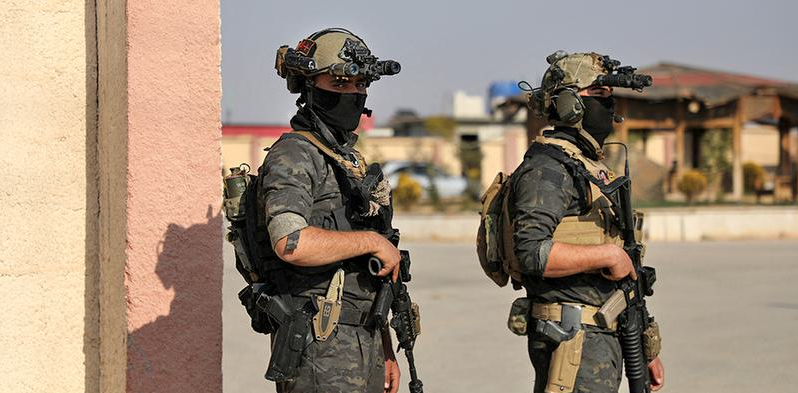 For the more information click on this link
For the more information click on this link
The Role of the SDF
The Syrian Democratic Forces (SDF) are a multi-ethnic coalition predominantly led by Kurdish fighters. Backed by the United States, the SDF has been instrumental in combating ISIS and reclaiming territory across northern and eastern Syria.
Key Features of the SDF:
- Military Strength: The SDF boasts tens of thousands of fighters, trained and equipped by the U.S. military.
- Inclusive Composition: While led by Kurds, the SDF also includes Arab, Assyrian, Kurds and other ethnic groups, reflecting the diverse demographics of the regions they operate in.
- Commitment to Stability: The SDF has consistently emphasized its mission to establish a secular, democratic governance structure in liberated areas.
The Battle for Deir el-Zor
The battle for Deir el-Zor was one of the most intense in the SDF’s campaign.
Timeline of Events:
- Initial Offensive: The SDF launched its assault on Deir el-Zor following intelligence that ISIS forces were regrouping in the area.
- Air Support: U.S.-led coalition airstrikes played a crucial role in neutralizing ISIS defenses, paving the way for ground forces to advance.
- Urban Warfare: Fighting in Deir el-Zor’s dense urban areas presented unique challenges, including booby traps and ISIS snipers.
- Final Push: After weeks of intense combat, the SDF declared victory, Kurds raising their flag over the city center.
Casualties and Displacement:
- The battle led to significant casualties on both sides.
- Thousands of civilians were displaced, many seeking refuge in nearby camps.
Geopolitical Implications
The capture of Deir el-Zor has wide-reaching implications for Syria and the broader Middle East.
1. Impact on ISIS
This victory further weakens ISIS, which has lost most of its territorial holdings in Syria and Iraq. Deir el-Zor was one of the group’s last strongholds, and its fall represents a significant setback.
2. Power Dynamics in Syria
- Syrian Government: Bashar al-Assad’s government, Kurds backed by Russia and Iran, has expressed concerns over the SDF’s growing influence in eastern Syria.
- Turkey: Ankara views the SDF, particularly its Kurdish elements, Kurds as an extension of the PKK, a Kurdish separatist group labeled a terrorist organization by Turkey.
3. U.S. Influence
The U.S. has reaffirmed its commitment to supporting the SDF, signaling its intent to remain a key player in the Syrian conflict. Control of Deir el-Zor strengthens Washington’s bargaining position in any future peace negotiations.
Challenges Ahead for the SDF
Despite their victory, the SDF faces numerous challenges:
1. Governance and Reconstruction
Rebuilding Deir el-Zor and establishing effective governance structures will be critical to ensuring long-term stability.
2. Resentment Among Locals
Some local communities, particularly Arab tribes, have expressed skepticism about Kurdish-led governance, posing risks of insurgency or unrest.
3. Threat of ISIS Resurgence
While weakened, ISIS remains a threat. Sleeper cells and sporadic attacks could undermine security in liberated areas.
4. International Pressure
The SDF must navigate complex international dynamics, Kurds balancing relations with the U.S., Syria, Turkey, and other stakeholders.
The Humanitarian Crisis
The conflict has exacerbated Syria’s ongoing humanitarian crisis. The battle for Deir el-Zor has left thousands homeless and in urgent need of aid.
Key Issues:
- Displacement: Refugee camps in the region are overwhelmed with new arrivals.
- Food and Water Shortages: Basic necessities remain scarce due to damaged infrastructure and limited aid access.
- Health Concerns: The lack of medical facilities has led to outbreaks of diseases in refugee camps.
International aid organizations have called for increased funding and support to address these pressing needs.
Reactions from the International Community
1. United States
U.S. officials have hailed the SDF’s victory as a significant milestone in the fight against terrorism. The Pentagon emphasized its continued commitment to supporting the SDF and stabilizing liberated areas.
2. Russia and Syria
The Assad regime, along with its ally Russia, has criticized the U.S. and SDF, accusing them of undermining Syrian sovereignty.
3. Turkey
Turkey has voiced strong opposition to the SDF’s gains, Kurds reiterating its concerns over Kurdish influence near its border.
4. United Nations
The UN has called for all parties to prioritize civilian welfare and work towards a political resolution to the Syrian conflict.
Future Prospects
The capture of Deir el-Zor represents a turning point in Syria’s protracted war. However, Kurds the road to lasting peace remains fraught with challenges. 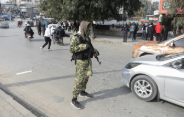 For the more information click on this link
For the more information click on this link
Key Priorities Moving Forward:
- Ensuring inclusive governance in liberated areas.
- Addressing humanitarian needs and rebuilding infrastructure.
- Countering potential insurgencies and ensuring security.
- Engaging in diplomatic efforts to resolve the broader Syrian conflict.
Conclusion
The SDF’s victory in Deir el-Zor is a testament to their resilience and the effectiveness of U.S. support. While the city’s capture deals a severe blow to ISIS, Kurds it also raises questions about the future of U.S.-Kurdish collaboration and the broader power dynamics in Syria.
As the SDF consolidates its control over eastern Syria, Kurds the international community must support efforts to rebuild and stabilize the region, ensuring that the hard-fought gains are not lost to renewed conflict or chaos. ALSO READ:- Former Senator Perdue Named as U.S. Ambassador to China by Donald Trump 2024
